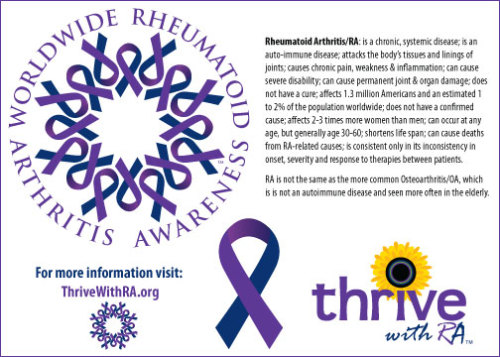So when you tell someone you have “Arthritis” when you really have some form of Autoimmune Arthritis, you are not doing the disease or those suffering justice. There are so many people, so many children, with autoimmune arthritis who are desperate for better treatments and a cure, but may not live to see one because our society does not realize the epidemic of autoimmune arthritis. You don’t promote the necessary awareness or justification autoimmune arthritis so desperately needs, and so you do every autoimmune arthritis sufferer a disservice. You do a disservice and injustice to all of the Still’s Disease and AA (autoimmune arthritis) sufferers that have died as a result of their disease (yes, you can die from these disease should you have organ involvement or compression of certain vertebrae).
Please, politely correct people when they do not correctly name your disease. Politely correct people who claim that their Osteoarthritis is just like yours. Not to prove them wrong, not to compare who suffers more, but to separate the two very different conditions from each other and educate our society. We’ll never reach a cure if we don’t make it know that we need one.
What’s in a name? Power. The power to create change, end suffering, and be a patient advocate. Whether you know someone suffering or you are afflicted by the disease, never forget to be a patient advocate.



